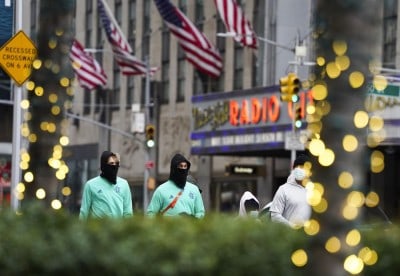Washington, Jan 23 : White House economic adviser Brian Deese said that the US risks falling into a “very serious economic hole” without decisive action, urging Congress to approve more Covid-19 relief as soon as possible.
“It’s pretty clear we’re at a precarious moment for the virus and the economy,” Deese, who serves as director of the National Economic Council, said at a White House press briefing on Friday.
“We are 10 million jobs short still of where the economy was when this pandemic started. Last month, the economy lost jobs for the first time since last spring,” he said, citing the latest data — another 900,000 Americans file for weekly unemployment insurance.
“It’s a moment that requires decisive action to beat this pandemic and support the economic recovery that American families need.
“Without decisive action, we risk falling into a very serious economic hole, even more serious than the crisis we find ourselves in,” Xinhua news agency quoted the adviser as further saying.
Noting that President Joe Biden laid out a comprehensive rescue plan last week, Deese called on Congress to move quickly to consider this important proposal without delay.
Biden’s $1.9 trillion proposal includes over $400 billion to combat the pandemic directly such as more funding for testing and vaccine distribution, roughly $1 trillion dollars in direct relief to households, and over $400 billion for hard-hit small businesses and communities.
Despite enthusiasm from the Democrats, the nearly $2 trillion price tag has drawn backlash from some Republican senators, who have aimed to hold down the overall cost of the economic relief, especially after the $900 billion bill approved in December 2020.
During the Senate confirmation hearing of Janet Yellen, Biden’s nominee for Treasury Secretary Senator John Thune of South Dakota said he was concerned about “the massive amount of debt we are racking up”.
Commenting on the reservations from some Republican senators, Deese told reporters that the Congress waited for months before taking action, and a lot of what the $900 billion bill was doing was “filling a hole” in the second half of 2020 that desperately needed to be filled.
“This is not an issue of Congress acting too much; it’s an issue of not acting enough,” he said.
Biden on Friday signed two executive orders, one to expand food assistance to low-income Americans, and the other to raise minimum wage to $15 for federal employees.
Stressing that these actions are not a substitute for comprehensive legislative relief, Deese said the executive orders will provide a “critical lifeline” to millions of families.
Disclaimer: This story is auto-generated from IANS service.

